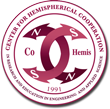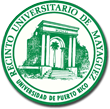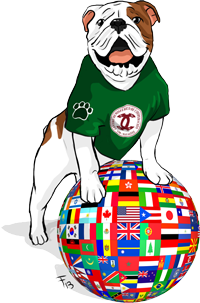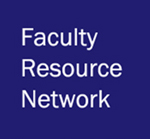HISTORY
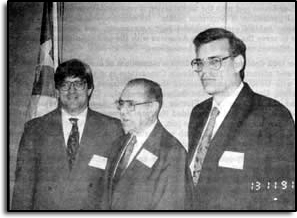
CoHemis founders: Dr. Carlos I. Pesquera (left), Dr. John B. Scalzi (center; NSF Program Director), and Dr. Luis Pumarada (right).
CoHemis was founded in November of 1991 in a conference sponsored by the National Science Foundation (NSF) and the University of Puerto Rico at Mayagüez. It had the participation of delegates from national science and technology organizations from the United States, Canada, and twelve countries from Latin American and the Caribbean. The assembly produced a unanimous declaration creating CoHemis, naming an advisory council to help mold its organization, and endorsing the Mayagüez Campus of the University of Puerto Rico as its site. Since then, other countries have joined the declaration, and their national councils of science and technology have named delegates to the Center.
After NSF funding was finished, the University of Puerto Rico has continued funding CoHemis, together with the collaboration of cooperating institutions, allowing the Center to carry on and increase its level of service based on initiatives for specific activities. Also, the government of Puerto Rico, federal agencies, and the private sector have been backing the Center's activities since its creation. It also benefits from collaborative efforts with Consortium members, international agencies, and entities from other countries of the hemisphere.
Since its founding on November of 1991, CoHemis has been responsible for organizing a number of conferences, workshops, courses and forums of national and international relevance, as part of its mission to promote the development of human resources, technology and programs which help science and engineering research and educational initiatives. Notwithstanding, CoHemis’ mission has recently taken a leading role through the planning efforts of the University of Puerto Rico’s “Diez para la Década” (Ten for the Decade).
The seventh purpose in those planning efforts’ strategic goals is the establishment of a “vocation for a global world”. These goals strengthen our creative performance. CoHemis has evolved into a Center which manages externally funded projects to become an office with full administrative and academic functions. CoHemis’ new responsibilities for the internationalization of the university match those of international schools around the world. For example, our office is part of a consortium of 51 institutions in 21 countries in America, the Caribbean and Spain. This promotes and facilitates international cooperation. The seminars and workshops organized by CoHemis every year help expose our faculty and students to matters of global significance. CoHemis’ work not only caters to UPRM’s needs, but also to those of the whole UPR system, through special tasks assigned by Central Administration.
Institutional support through recurring funding has allowed CoHemis to set a new work model which diversifies and maximizes the office staff’s immense potential. Through this new method of operation, it is possible to rapidly assess to the school’s needs and to not be limited to the specific objectives of externally funded projects. Summarizing, CoHemis is meeting the inherent need of internationalizing the educational system of every 21st century university.
MISSION
Promote and facilitate the development of human resources, technology, and programs that help to organize research and educational initiatives in science and engineering for the benefit of the western hemisphere countries.
VISION
To be a positive and dynamic agent of communication, change, and local and international cooperation in a framework of excellence and integrity for the fields of science and engineering, technology and education.
OBJECTIVES
• Increase the industrial competitiveness of the Western Hemisphere.
• Enhance the science and technology capabilities of the Americas and the Caribbean.
• Stimulate the protection of the hemisphere’s resources and environment.
• Increase the knowledge of regional problems of high priority among researchers and educators in the Americas.
• Increase the number and quality of Hispanic engineers and scientists in the global market.
CURRENT PRIORITY AREAS
• Global Change
• Infrastructure
• Education Improvement
• Sustainable Development
• Bioprospecting
• Computational and Systems Biology
• Remote Sensing
• Geographic Information Systems
RESPONSABILITIES
• Administer the activities related with the CoHemis Consortium.
• Coordinate conferences, workshops, forums, and short courses in and out of Puerto Rico.
• Bring administrative support to research and educational projects manage from the office.
• Coordinate and facilitate educative and investigative exchange of professors and students with other countries.
CUSTOMERS
• Members of the CoHemis Consortium
• Professors and students of the entire western hemisphere
• Researchers of science and engineering
• Academic administrators
• Members of several sectors of the society
SERVICES PROVIDED
• Dissemination of Information
• Technology and knowledge transfer
• Coordinate and facilitate exchange visits
• Collaborate in proposals development
• Administrative support of international projects
